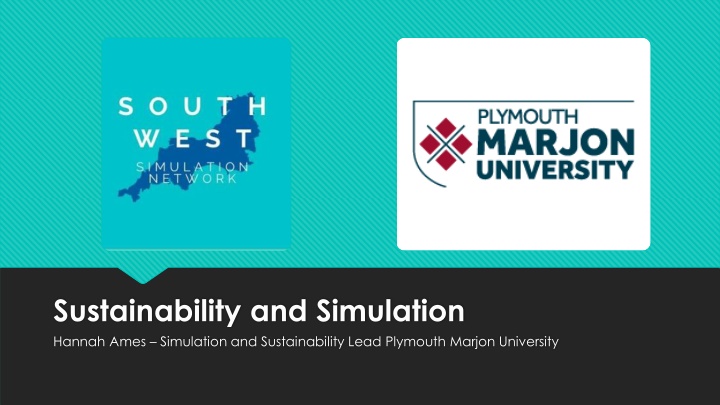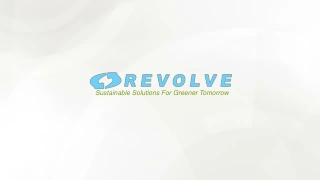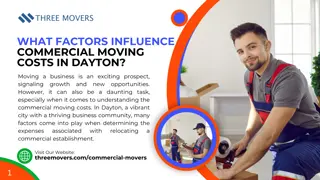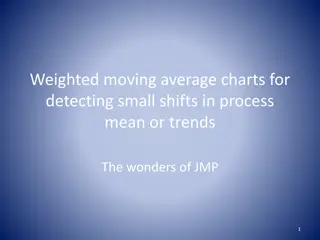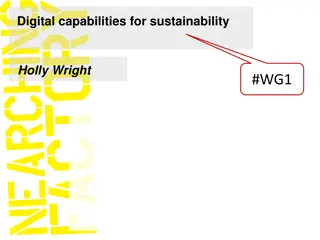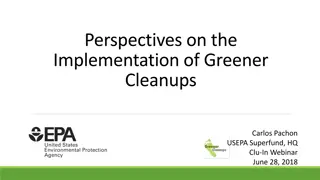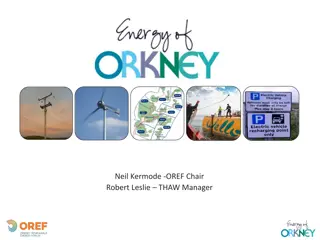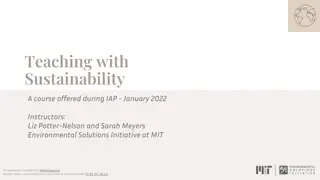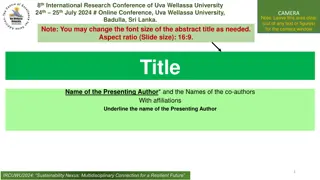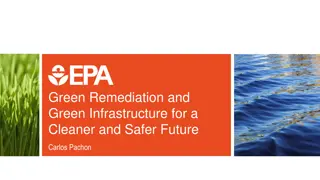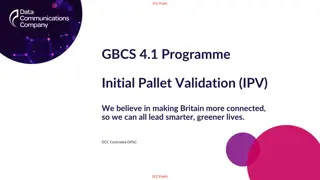Sustainability in Healthcare Education: Moving Towards a Greener Future
Addressing the urgent need for sustainability in healthcare, this presentation highlights the role of simulation in educating healthcare professionals about climate change and its impact on patient care. It emphasizes the importance of sustainability research and offers strategies such as developing specific simulation scenarios and implementing sustainability guidelines for equipment reuse and recycling. The focus is on bridging the gap between personal practice and global climate change awareness among healthcare students and staff.
Download Presentation

Please find below an Image/Link to download the presentation.
The content on the website is provided AS IS for your information and personal use only. It may not be sold, licensed, or shared on other websites without obtaining consent from the author.If you encounter any issues during the download, it is possible that the publisher has removed the file from their server.
You are allowed to download the files provided on this website for personal or commercial use, subject to the condition that they are used lawfully. All files are the property of their respective owners.
The content on the website is provided AS IS for your information and personal use only. It may not be sold, licensed, or shared on other websites without obtaining consent from the author.
E N D
Presentation Transcript
Sustainability and Simulation Hannah Ames Simulation and Sustainability Lead Plymouth Marjon University
Climate Change and Healthcare Urgent action has been called to address the climate change crisis. Healthcare is a major contributor to the climate crisis, producing 4.4% of net carbon global emissions. NHS Greener target to reach net zero co2 emissions by 2045. The future workforce must understand carbon literacy and the effect of their clinical practice on carbon emissions in order to lower emissions (Sawyer 2020).
Sustainability Research Healthcare students and staff perceive this to be important and want to be educated on sustainability. There is disconnect from personal practice and its impact on climate change and patient care is viewed as the priority. There still remains minimal education or specific simulation examples within in healthcare education. Educators have been slow to embed sustainability, due to lack of clear sustainability competencies and demands in curriculum.
What could we do Simulation Education Simulation provides active learning, systems thinking approach to delivering sustainability education. Developing specific sustainability simulation scenarios asthma presentation related to air quality. Using simulation to connect to personal practice to global climate change for example practical calculations of carbon emissions, studying the system, lean pathway design. Research
Sustainability Simulation Design and Delivery Development and guidelines for reusing and recycling equipment Procurement best practice guidelines Accreditation standards to include sustainability
Special Interest Group hames@marjon.ac.uk
